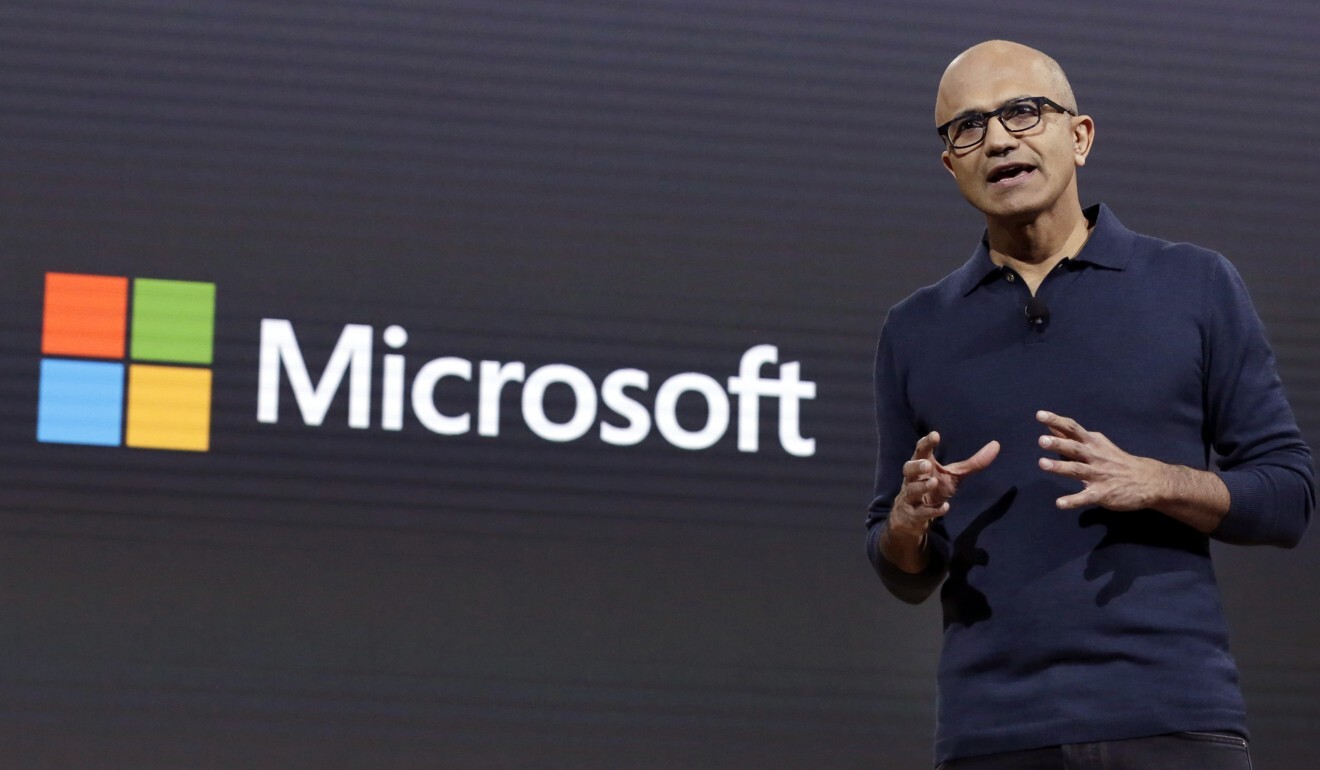
Trump’s H-1B visa freeze: will US tech firms lose the next Sundar Pichai or Satya Nadella?
- The suspension of the scheme for skilled foreigners has dealt a blow to the US tech sector and Indian tech workers, who receive most of these visas
- Alphabet’s Sundar Pichai and Microsoft’s Satya Nadella are some talents from India who have built their tech careers in the US thanks to the H-1B visa
Indian immigrants, hired by both American tech firms and US-based Indian tech companies, are the overwhelming beneficiaries of the H-1B programme, receiving 70 per cent of the 85,000 visas issued every year.

Alphabet CEO Sundar Pichai, Microsoft head Satya Nadella, and former boss of PepsiCo Indira Nooyi are some prominent talents from India who have used the H-1B scheme as a gateway to build their careers in the US.
Immigration has contributed immensely to America’s economic success, making it a global leader in tech, and also Google the company it is today
“Now is not the time to cut our nation off from the world’s talent or create uncertainty and anxiety,” Microsoft President Brad Smith said on social media. The firm had 1,701 H-1B visa approvals in 2019.
Alphabet’s Pichai said he was “disappointed” by Trump’s proclamation.
Amazon said the order was “short-sighted” and would put “America’s global competitiveness at risk”. The company had the most number of H-1B visa approvals at 3,026 in 2019.

01:42
K-pop fans and TikTok teens troll Trump with fake registrations for first campaign rally in months
Poorvi Chothani, managing partner at the LawQuest, a global immigration law firm which operates both in India and the US, said the visa suspension was designed to pander to Trump’s voter base.
“In my view, this is political posturing to appeal to a vote bank that believes jobs are lost to foreign workers. The US presidential elections are around the corner and President Trump is trying his best to get re-elected,” Chothani said.
“For the companies, that is, the employers, it means they will have to rework their human resource requirements and strategies,” she added. “The situation is further aggravated by the ban because already IT companies have been facing [the] loss of business due to Covid-19.”
Apple supplier Foxconn eyes further investment in India
For the financial year ending March 2021, Indian nationals account for 184,000 H-1B applications – or 67 per cent – of the total 250,000 requests received by the US Citizenship and Immigration Services as per the latest data. Applications from China stand at a distant second at 13 per cent.
Alongside H-1B, other work permits such as H-2B, and a few categories of J and L visas – used by both US-based Indian firms and American tech giants – also stand suspended.
The proclamation does not apply to those who already hold visas.
Trump aides said they were seeking to restructure the H-1B visa programme from an annual lottery to a system that gives priority to those foreign workers with the most value.

But given that US businesses are the biggest market for Indian IT firms, pumping in over 60 per cent of revenues, the visa freeze is bound to be a blow.
“Lengthening these burdensome restrictions on US companies that are trying to recover from the economic fallout of the Covid-19 pandemic will only serve to harm our economy,” said Nasscom, India’s influential tech industry lobbying body.
Indian unicorns bridle as Delhi looks Chinese gift horse in the mouth
Furthermore, some Indian companies with US bases have been hiring talent from within the country over the last few years.
For instance, Indian tech giant Infosys exceeded its target of hiring 10,000 American workers last year, and Wipro said more than half of its US-based workforce are US citizens.
At the same time, the H-1B rejection rate for Indian applicants has been rising over the years, observers say.
Anand Bhushan, partner and Chennai Head of the law firm Shardul Amarchand Mangaldas and Co, said there will be a “decline in the operating margin for Indian IT companies” as they try to strike a balance between H-1B visa holders and local employees.
“Indian IT companies have a more significant long-term earnings threat as the industry moves away from the benefits of Indian cost labour arbitrage to artificial intelligence and cloud. Covid-19 and American regulatory responses will merely accelerate that trend,” Bhushan said.
However, the prevailing restrictions on global travel and booming remote-working delivery models are expected to cushion the impact of the visa freeze on Indian IT service firms at least for the foreseeable future, he added.
Additional reporting by Reuters and Bloomberg

